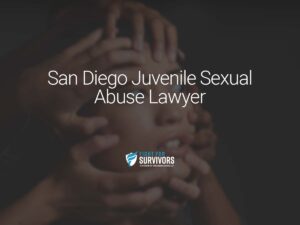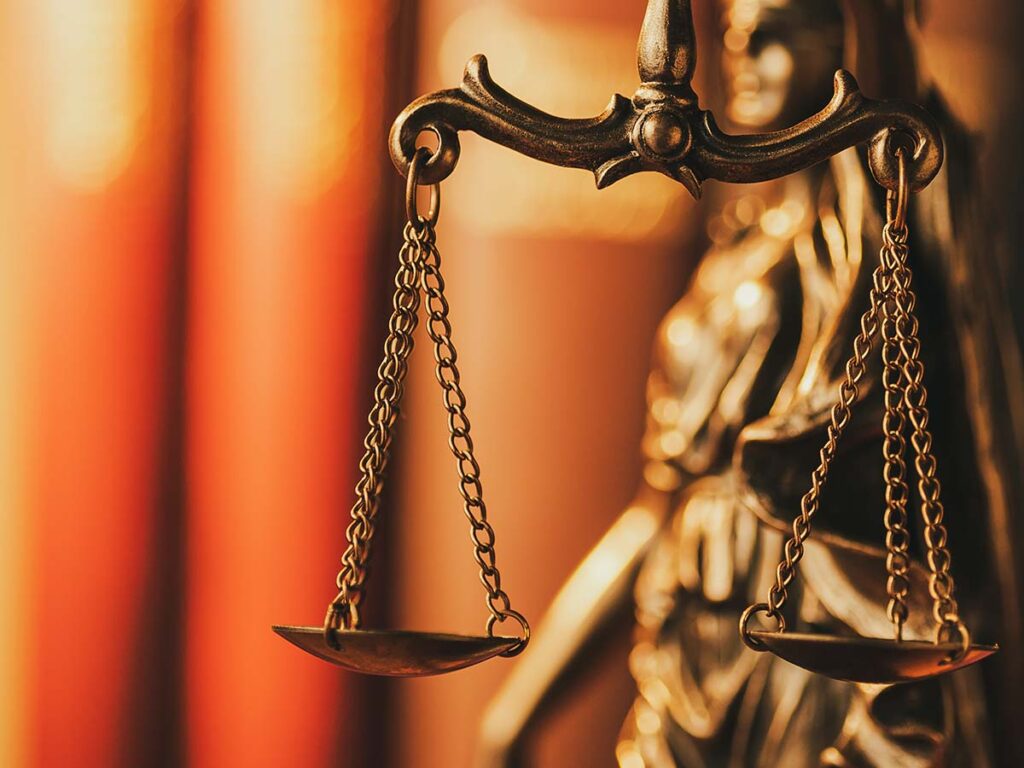
If your pre-teen or teenager (juvenile) has been a survivor of sexual abuse in San Diego, seeking legal support is essential for ensuring justice and promoting healing. Juvenile sexual abuse remains a significant issue, with many cases going unreported, leaving survivors without the support they need.
California’s legal framework empowers survivors to pursue justice through civil claims and criminal prosecution, but there are specific limitations and nuances related to statutes of limitations for both types of cases. At Greenberg Gross LLP, our experienced attorneys are dedicated to protecting survivors’ rights, ensuring confidentiality, and holding perpetrators and organizations accountable for their actions.

Understanding Juvenile Sexual Abuse in San Diego
Juvenile sexual abuse refers to any abusive behavior targeting minors, often resulting in profound psychological and emotional trauma. Addressing these issues is critical for creating safe environments and supporting survivors in their recovery.
Key Facts About Juvenile Sexual Abuse:
- Abuse can take many forms, including unwanted sexual advances, molestation, and exploitation.
- Youth organizations, schools, and extracurricular programs can sometimes become settings for abuse due to inadequate supervision or failure to act on warning signs.
By understanding the dynamics and effects of juvenile sexual abuse, families and communities can take proactive steps to protect children and hold abusers accountable.
Legal Definitions and Rights for Teen Survivors
What Constitutes Sexual Abuse?
California law defines sexual abuse as any unwanted sexual contact involving a minor. This includes acts of molestation, exploitation, indecent exposure, and child pornography.
Minors Cannot Consent:
- The legal age of consent in California is 18, meaning minors cannot legally agree to sexual acts.
- Any sexual activity involving a minor is automatically classified as abuse.
The California Child Survivors Act:
- Allows survivors to file claims regardless of how long ago the abuse occurred.
- Permits survivors to file civil lawsuits within five years of discovering the psychological effects of abuse.
These laws are designed to protect survivors and ensure they have multiple avenues to pursue justice and seek compensation. Please be aware that there may be exceptions and restrictions to these laws. Contacting an experienced attorney for a confidential and free consultation is critical.
The Psychological and Physical Impacts of Juvenile Sexual Abuse
Psychological Effects:
- Anxiety, depression, PTSD, and feelings of shame or guilt.
- Difficulty forming trusting relationships and maintaining self-esteem.
Physical Consequences:
- High-risk behaviors such as substance abuse or unsafe sexual practices.
- Increased vulnerability to medical issues, including sexually transmitted infections.
Healing and Support:
Seeking professional counseling is critical for addressing the emotional and psychological effects of abuse. At Greenberg Gross LLP, we connect survivors with the resources and support needed to begin their healing journey while pursuing justice.
Identifying Perpetrators of Juvenile Sexual Abuse
Common Perpetrators:
- Family members, such as parents, siblings, or extended relatives.
- Acquaintances, such as teachers, coaches, clergy, or peers.
- Strangers are only involved in approximately 10% of abuse cases.
Abuser Profiles:
- Perpetrators often exploit positions of trust or authority to manipulate survivors.
- Most predators choose survivors they believe are unlikely to report the abuse due to fear or lack of support.
Recognizing these patterns allows families and communities to implement safeguards to protect children.
Holding Responsible Parties Accountable
Accountability extends beyond the abuser, encompassing organizations and individuals who fail to act responsibly.
Organizations and Institutions:
- Schools, youth organizations, and religious institutions may be held liable for failing to supervise employees or enforce child safety measures.
- California law allows survivors to pursue treble damages when certain institutions cover up abuse, ensuring accountability and deterring future negligence.
Mandatory Reporters:
- Professionals like teachers, healthcare providers, and social workers are legally required to report suspected abuse. Failure to do so can result in liability.
Legal Avenues:
- Criminal Prosecution: Ensures the abuser faces the full extent of the law.
- Civil Litigation: Allows survivors to seek compensation for damages, including therapy costs and medical expenses.
At Greenberg Gross LLP, we specialize in holding both perpetrators and negligent organizations accountable, advocating for justice and meaningful change.
The Role of a San Diego Juvenile Sexual Abuse Lawyer
An experienced juvenile sexual abuse lawyer is essential in navigating the complexities of these cases. At Greenberg Gross LLP, we provide:
1. Comprehensive Legal Support:
- Investigating claims, gathering evidence, and filing lawsuits.
2. Confidentiality Protections:
- Safeguarding survivors’ identities by using aliases in legal proceedings.
3. Compassionate Advocacy:
- Offering trauma-informed representation to alleviate stress during the legal process.
Our attorneys work tirelessly to ensure survivors and their families feel supported while seeking the justice they deserve.
Steps to Take If Your Teen Has Been Abused
1. Contact Law Enforcement:
- Promptly report the abuse to initiate an investigation and ensure your child’s safety.
2. Seek Medical Attention:
- Obtain medical care to address physical injuries and collect evidence if needed.
4. Consult an Attorney:
- Reach out to an experienced sexual abuse lawyer to discuss legal options and begin building a case.
5. Arrange Counseling:
- Engage a therapist specializing in child sexual abuse to support your teen’s emotional recovery.
At Greenberg Gross LLP, we guide families through every step, providing the legal and emotional resources necessary for healing and justice.
Confidentiality and Support for Teen Survivors
Confidentiality is paramount for survivors of sexual abuse. In California, survivors can:
- File lawsuits anonymously or use aliases to protect their identities.
- Work with attorneys who prioritize privacy and ensure sensitive information remains confidential.
At Greenberg Gross LLP, we:
- Provide free consultations to discuss cases confidentially.
- Offer compassionate, client-focused representation tailored to the needs of teen survivors and their families.
Protecting survivors’ privacy allows them to seek justice without fear of retaliation or exposure, empowering them to move forward.
Contact Greenberg Gross LLP
Juvenile sexual abuse is a grave issue affecting countless families. At Greenberg Gross LLP, we are committed to:
- Advocating for survivors and holding perpetrators accountable.
- Providing legal and emotional support tailored to each survivor’s needs.
If your child has been affected by juvenile sexual abuse, contact us today for a free consultation. Let us help you navigate this challenging time and ensure justice and healing for your family.
Frequently Asked Questions
What is the legal definition of juvenile sexual abuse?
Juvenile sexual abuse includes any unwanted sexual contact involving minors, encompassing acts of molestation, exploitation, or inappropriate behavior.
What are the common psychological impacts of juvenile sexual abuse?
Survivors often experience anxiety, depression, and PTSD. Addressing these issues through counseling and support is critical for healing.
Who are the common perpetrators of juvenile sexual abuse?
Family members, teachers, coaches, clergy, and peers are common perpetrators, often exploiting positions of trust or authority.
How can Greenberg Gross LLP help survivors of juvenile sexual abuse?
Our experienced attorneys provide compassionate legal representation, ensuring confidentiality and pursuing justice for survivors through civil litigation and criminal accountability.
What steps should I take if my teen has been sexually abused?
Report the abuse, seek medical attention, preserve evidence, consult an attorney, and arrange counseling to support your teen’s recovery.